Archive
16 December 2021
NWO-Veni grant for 4 researchers of TNW faculty
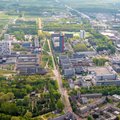
NWO has awarded Veni grants to four researchers from the TNW faculty, with funding of up to 250,000 euros per grant. This will enable these researchers to further develop their own research ideas over a period of three years.
08 December 2021
Counting electronic states in a single molecule
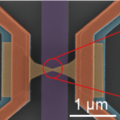
A team of researchers from the UK, the Netherlands, Switzerland and Belgium has managed to measure changes in the energy levels of a free radical molecule in a magnetic field. They were able to measure directly the thermoelectric currents inside the molecule, using a new method called thermocurrent spectroscopy. This method, published in Nano Letters, is an important tool for both chemical synthesis and single-molecule electronics.
08 December 2021
Building a lensless microscope to study next-gen chips
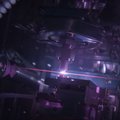
Transistors used in computer chips have now reached the tiny scale of mere nanometres, yet chips manufacturers still lack the optical power to study this new generation of chips. Researchers from TU Delft have built a lensless microscope to make an image at the scale of 200 nanometres. With further refining of this technique the researchers expect to bring images of nanoscale transistors within their grasp in the next two years.
24 November 2021
TU Delft creates one of the world’s most precise microchip sensors – thanks to a spiderweb
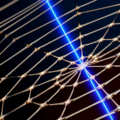
A team of researchers from TU Delft managed to design one of the world’s most precise microchip sensors; the device can function at room temperature – a ‘holy grail’ for quantum technologies and sensing.
19 November 2021
Delft scientists put the spotlight on combined capture and conversion of CO2
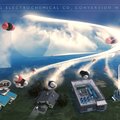
CO2 can be electrochemically converted into valuable chemicals and fuels. Both capturing and converting CO2 do, however, require a lot of energy. An optimal combination of both processes can save a lot of energy and reduce the loss of materials. The TU Delft research group of David Vermaas recently published a paper in Nature Catalyses, summarising the various ideas on how to achieve this.
11 November 2021
Interview with Spinoza Prize winner Lieven Vandersypen

Lieven Vandersypen, Professor in Quantum Nanoscience and scientific director of Qu-Tech, has been awarded a Spinoza Prize for his pioneering work on quantum computation, which holds great promise for global problems in health, climate and energy. With his prize Vandersypen also intends to encourage girls to go into the field of technical sciences, as well as help people tell the difference between facts and fabrications. “The first time I heard about quantum computers I thought: how are these things possible?"
05 November 2021
TU Delft Education Heroes in the spotlight during Education Day on 4 November
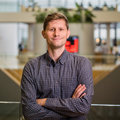
04 November 2021
Scanning a single protein, one amino acid at a time
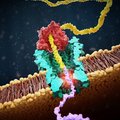
Using nanopore DNA sequencing technology, researchers from TU Delft and the University of Illinois have managed to scan a single protein: by slowly moving a linearized protein through a tiny nanopore, one amino acid at the time, the researchers were able to read off electric currents that relate to the information content of the protein. The researchers published their proof-of-concept in Science today. The new single-molecule peptide reader marks a breakthrough in protein identification, and opens the way towards single-molecule protein sequencing and cataloguing the proteins inside a single cell.
02 November 2021
Marileen Dogterom elected as KNAW president
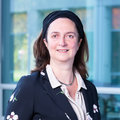
We warmly congratulate professor Marileen Dogterom on her appointment as the president of the Royal Netherlands Academy of Arts and Sciences (KNAW), the forum, conscience, and voice of the arts and sciences in the Netherlands, effective June 1, 2022.
27 October 2021
Making artificial leather while processing wastewater
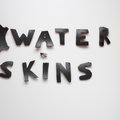
Leather is a strong product but has been getting bad press lately due to the fact that it is made of animal skins and the production process is a burden on the environment. The TU Delft student team WaterSkins has come up with a very sustainable alternative: artificial leather made during the treatment of wastewater.